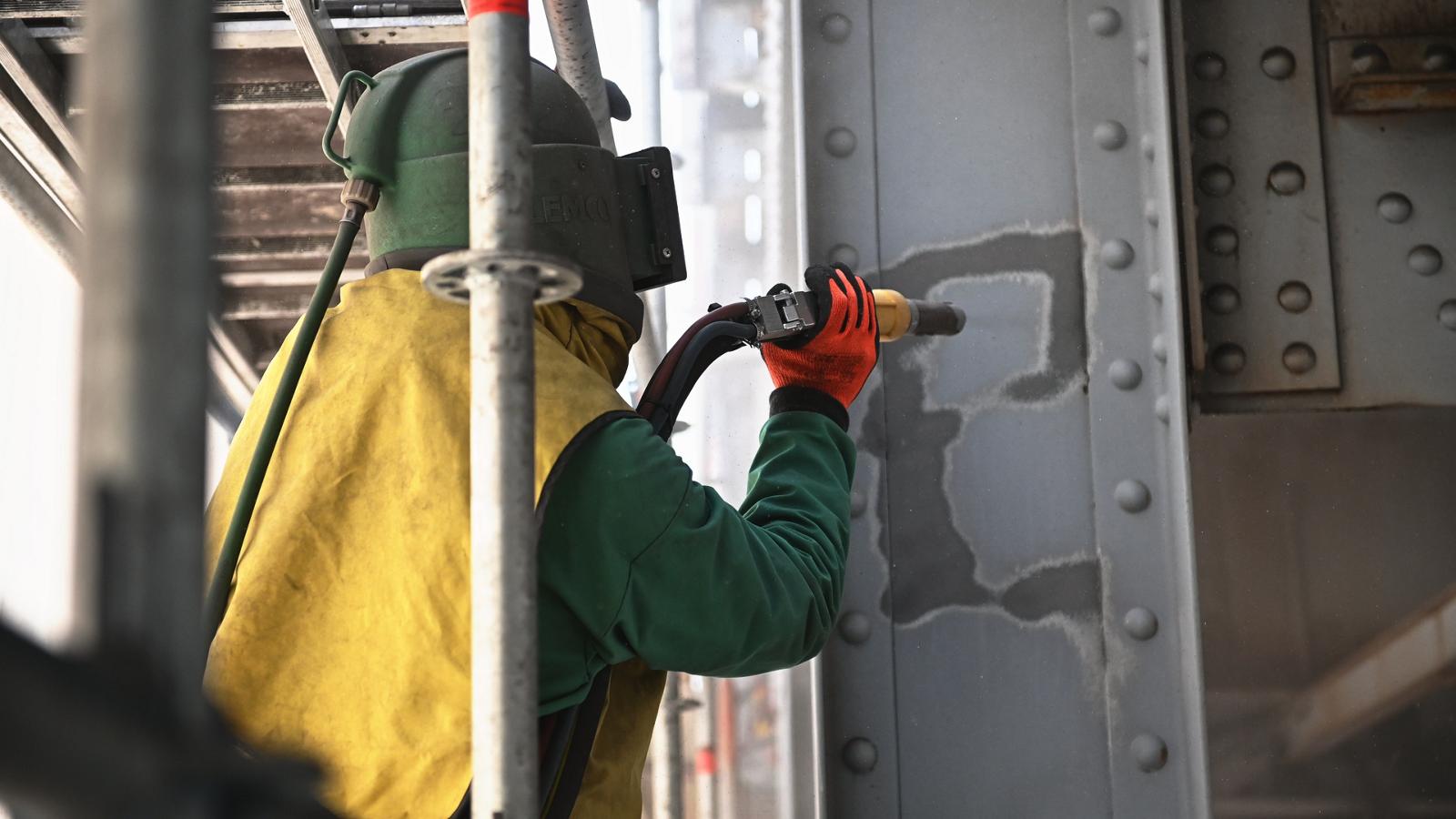What is the sandblasting process?
Also known as abrasive blasting, sandblasting is a surface finishing process that uses an industrial spray gun to propel abrasive particles at a very high velocity against a chosen surface. A sandblasting machine is powered by an air compressor, which ejects sand (and other materials with the potential to be abrasive) out through a handheld nozzle. The gritty, rough consistency of sand makes it the most popular medium for wearing away decayed, flaky, excess or unwanted material on a surface to change its texture. Its abrasive properties are used to create a smooth surface with fewer imperfections to achieve either a finish in itself, or the basis for further coating. Various other mixed media can be used for abrasive blasting projects, including aluminium oxide, glass beads, copper slag, walnut shells, powdered abrasives, and garnet. Sandblasting can be used to strip off old paint, rust and grease; roughen up or smooth out a surface; remove corrosion; clean tools; and enhance aesthetic value, to name a few. It is often used to either restore a surface to its original condition, or prepare it for refinishing and repair.
How to choose the right sandblasting compressor?
It is vital to choose a right compressor to get the job done efficiently. There are 3 parameters are critical: pressure, free air delivery and the quality of the compressed air. Read more below on how Atlas Copco makes sure to deliver the best performance for each of these factors.
3 parameters to take into account
1. Pressure
Based on the material (wood, cement, steel, ...) and the purpose (roughning, cleaning, surface hardening, ...), sandblasting applications need a different pressure. Atlas Copco's PACE compressors provide the possibility to adjust the pressure according to the application's needs and helps increasing the versatility.
Pressure is the power of compressed air. The higher the pressure, the more powerful the output. This also means that the recoilless will be higher, making the operator more easily tired. As for most things in life: balance is key. Also in the construction industry. For hard steel surface, 100 PSI offers the best balanced pressure, varying on the operator’s personal status.
As the compressed air goes through the sandblasting machine and hoses, it causes a pressure drop and therefore less productivity. Normally, the sandblasting productivity will reduce 1.5% as the pressure reduces 1% based on 100 PSI. Keeping the nozzle pressure at the best balanced pressure, is key to achieve the best productivity. A pressure adjustable compressor in this case, will make this happen.
2. Free Air Delivery
In sand blasting, all the compressed air will go through the nozzle. The nozzle’s size and working pressure will define the FAD consumption. Insufficient FAD will cause a lower working pressure of the nozzle and reduce the productivity. Our PACE technology will increase the FAD of the compressor as the pressure is reduced, which can better fit the FAD requirement of your sandblasting application.
3. Air quality
The quality of the air is always an important factor: both for the operator as for the application itself. The lesser the oil and moisture in the compressed air, the healthier it is for the operator. With sandblasting, moisture in the compressed air may cause the hose to be clogged, increasing the downtime. Presence of oil on the other hand may also contaminate the blasting surface. Our high performance aftertreatment, aftercooler, filter and reheater will guarantee you the highest quality of compressed air.
Temperature, exposure to contaminants, such as moisture or oil, and the overall quality of the blast medium are some of the many other variables that are integral to establishing what compressor - and its treatments - are best.
Whatever your project specifications, Atlas Copco has the ideal solution. Just ask industrial maintenance specialist IB Service, who is currently using our E-Air portable compressors to sustainably drive the biannual revamp of a biomass power plant in the south-west of Germany.
E-Air for Biomass application in Germany
Our range boasts unparalleled productivity, coverage and utilisation, lower operational costs, and enhanced safety. Our team experts can help define your targets and requirements, and find the ideal compressor or treatments to optimise any sandblasting project.
Related products



